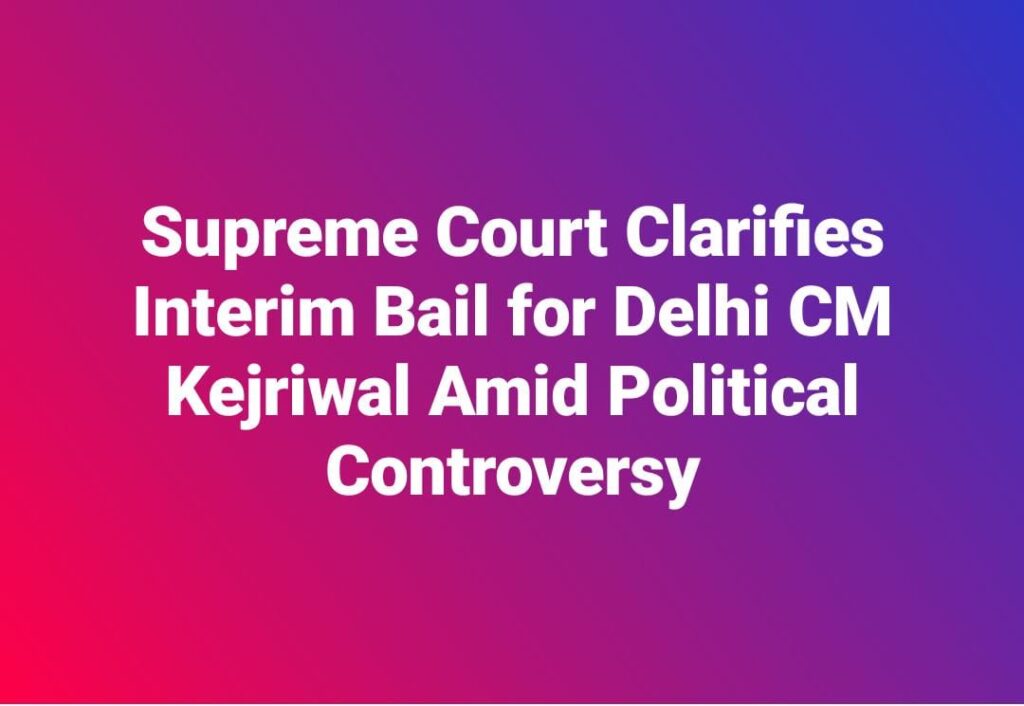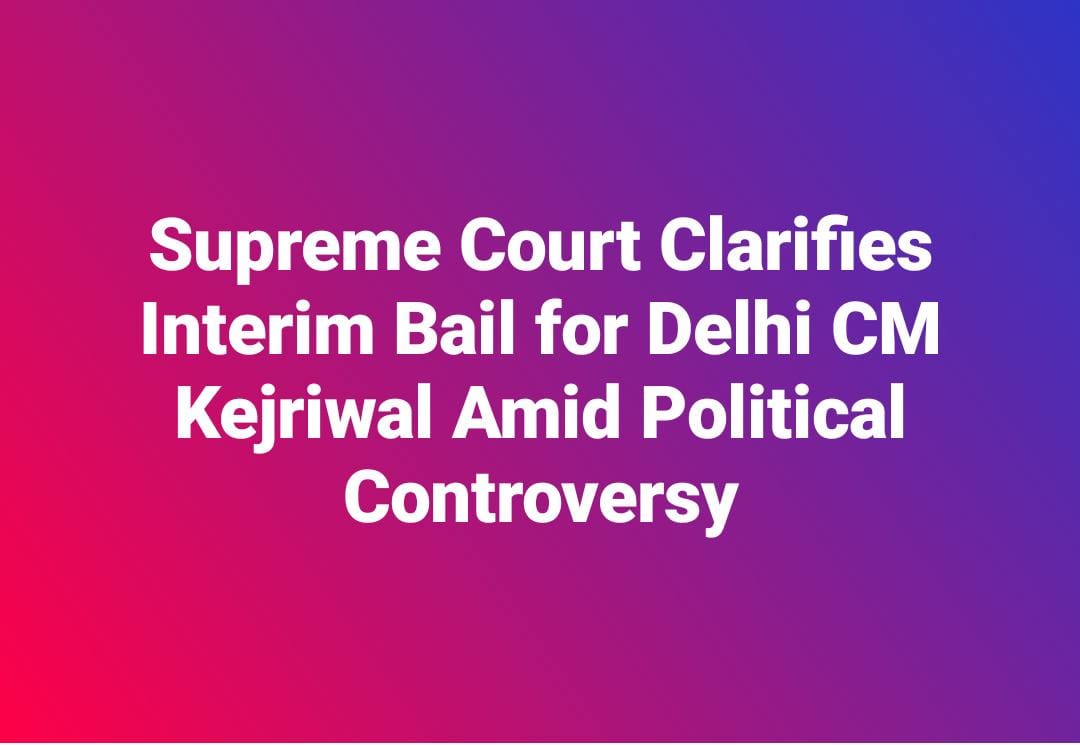National Desk
16 May
Sandeep Dhand Ludhiana
The Supreme Court on Thursday distanced itself from political debates surrounding its decision to grant interim bail to Delhi Chief Minister Arvind Kejriwal for campaigning in the Lok Sabha elections. A bench of Justices Sanjiv Khanna and Dipankar Datta emphasized that their judgement was based on legal merit, not political considerations.

The bench dismissed claims from both the Enforcement Directorate (ED) and Kejriwal’s advocates regarding statements about the interim bail. “We have not made any exception for anybody. We said in our order what we felt was justified,” the bench stated.
Solicitor General Tushar Mehta, representing the ED, objected to Kejriwal’s remarks at campaign rallies suggesting that voting for the Aam Aadmi Party (AAP) would prevent his return to prison on June 2. The bench responded that Kejriwal’s assumptions were his own and reiterated that the court’s order specified his surrender date clearly. “It is the order of the Supreme Court. The rule of law shall be governed by this order,” the justices affirmed.
Mehta alleged that Kejriwal’s assertions were a violation of his bail conditions and undermined the judiciary. “It is like a slap on the institution,” Mehta argued. However, Justice Khanna clarified, “We have not said anything in the order that he cannot speak about the case.”
Senior advocate Abhishek Singhvi, representing Kejriwal, countered allegations of special treatment and denied Kejriwal made any statements about needing votes to avoid jail. Singhvi offered to submit an affidavit to that effect.
The Supreme Court was addressing Kejriwal’s plea against his ED arrest in a money-laundering case linked to the alleged excise policy scam in Delhi. On May 10, the court had granted Kejriwal interim bail until June 1, coinciding with the end of the general election. The court ordered him to surrender on June 2, barring him from visiting his office or signing official documents except as necessary for lieutenant governor approval.
Kejriwal was arrested on March 21 concerning alleged corruption in the Delhi government’s 2021-22 excise policy, which has since been scrapped. The Supreme Court’s decision underscores its commitment to legal principles over political narratives.

